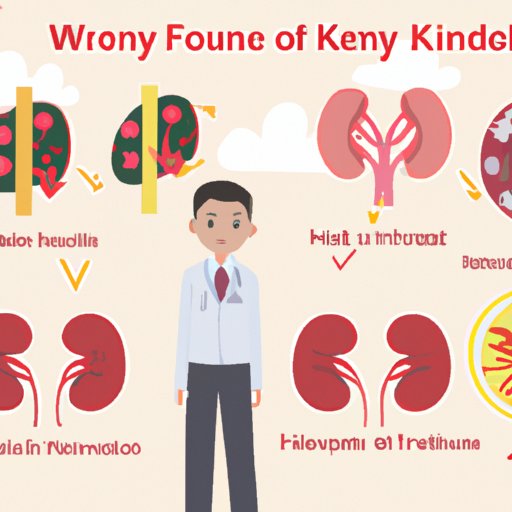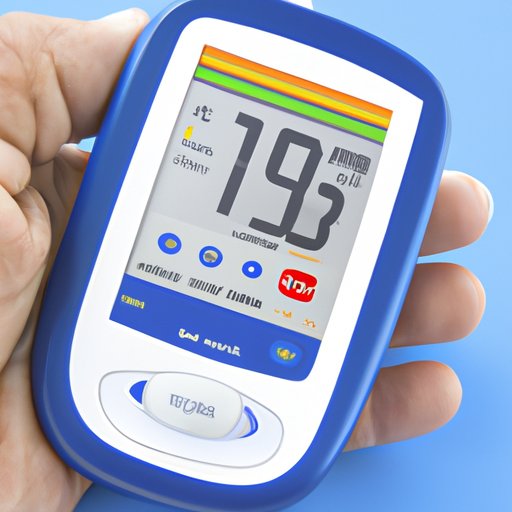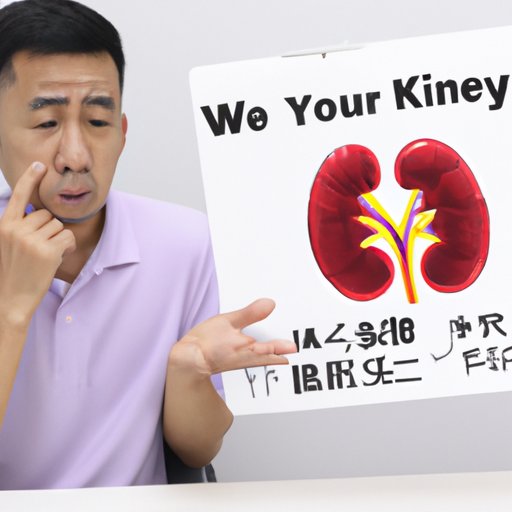Introduction
Kidney failure, also known as renal failure, is a serious medical condition in which the kidneys become unable to filter waste and toxins from the body. It can lead to a variety of health problems, including anemia, high blood pressure, bone disease, electrolyte imbalances, and even death. Understanding the symptoms of kidney failure, getting tested by a medical professional, monitoring your urine output, paying attention to your dietary habits, and tracking your blood pressure and glucose levels are key steps to detecting this condition early.

Understand the Symptoms of Kidney Failure
The first signs of kidney failure may be subtle, making them easy to overlook. Knowing the common symptoms of kidney failure can help you catch it early and get the necessary treatment. According to the National Kidney Foundation, common symptoms include:
Swelling in the Legs and Feet
Swelling in the legs and feet, often accompanied by puffiness around the eyes, can be an early sign of kidney failure. This is due to fluid buildup in the body caused by the kidneys’ inability to effectively remove excess fluid.
Urine Changes
Changes in the color and consistency of your urine can also indicate kidney failure. Urine may be foamy or bubbly, have a strong odor, or be cloudy. It may also be dark or tea-colored, indicating that there is blood in the urine.
Fatigue and Weakness
Feeling excessively tired or weak can also be a sign of kidney failure. This is usually due to anemia, which can occur when the kidneys are not able to produce enough of a hormone called erythropoietin (EPO). EPO stimulates the production of red blood cells, which carry oxygen throughout the body.
High Blood Pressure
Having high blood pressure, also known as hypertension, is another common symptom of kidney failure. Hypertension is caused by the kidneys’ inability to regulate sodium and other minerals in the body.
Difficulty Concentrating
Having difficulty concentrating or thinking clearly can also be a sign of kidney failure. This is usually due to an accumulation of toxins in the body, which can affect brain function.
Get Tested by a Medical Professional
If you experience any of the above symptoms, it is important to see a medical professional for testing. A doctor can perform a variety of tests to diagnose kidney failure, including a urinalysis, a blood test, an imaging test such as an ultrasound, and a biopsy. The results of these tests will help determine the severity of the condition and the best course of treatment.
Monitor Your Urine Output
Monitoring your urine output can also be an effective way to detect kidney failure. Pay attention to how often you urinate, as well as the color and consistency of your urine. If you notice any changes, such as decreased frequency or dark or cloudy urine, it is important to seek medical attention.

Pay Attention to Your Dietary Habits
Making changes to your diet can also help prevent or slow the progression of kidney failure. Increasing your water intake can help flush out toxins from the body, while limiting amounts of protein, salt, and potassium can help reduce the strain on the kidneys. Additionally, avoiding alcohol and caffeine can help protect against further damage to the kidneys.

Track Your Blood Pressure and Glucose Levels
Tracking your blood pressure and glucose levels is also important for detecting kidney failure. High blood pressure and elevated glucose levels can both be indicators of kidney damage. It is important to monitor these levels regularly and take safety precautions, such as avoiding activities that can lead to injury.
Conclusion
Kidney failure can be difficult to detect, but taking proactive steps can help you identify it early and get the necessary treatment. These steps include understanding the symptoms of kidney failure, getting tested by a medical professional, monitoring your urine output, paying attention to your dietary habits, and tracking your blood pressure and glucose levels. If you suspect you may have kidney failure, it is important to seek medical help right away.
(Note: Is this article not meeting your expectations? Do you have knowledge or insights to share? Unlock new opportunities and expand your reach by joining our authors team. Click Registration to join us and share your expertise with our readers.)
